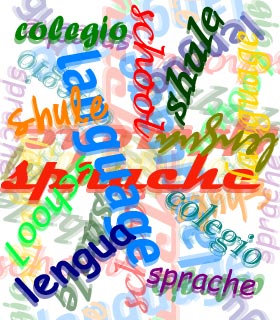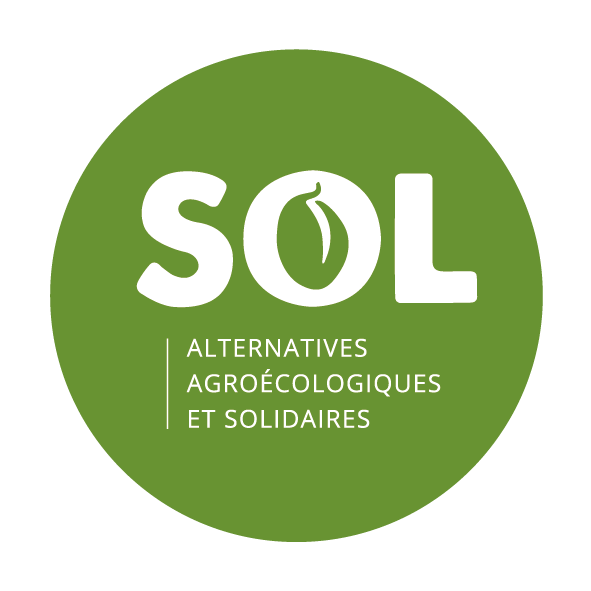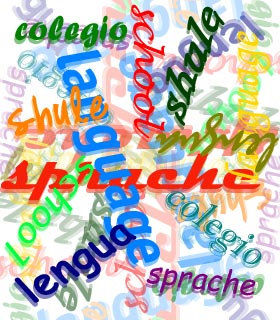A world without languageS ?
«We don’t live in a country, we live in a language»
E. M. Cioran
UNESCO, Atlas of the World’s Languages in danger (2011)
Today, half of the world 6900 spoken languages are endangered; which means only spoken by parents or grand-parents of a household, without passing down to the next generations. Here is the sad assessment of the UNESCO Atlas of the World’s Languages in danger published in 2010, which lists the vitality of spoken languages in the world regarding nine indicators (of which the absolute number of speakers or the material availability of learning and education). At the hands of this critical situation, the international day of mother tongue, on the 21st of February, is the occasion to have a reflection and to think about the means of action in order to preserve endangered languages and that every individual can express himself in his mother tongue.

Mother tongue, © in-terre actif network
Linguistic diversity as the guarantor of the cultural diversity
On the 21st of February, five students have been killed in order to designate Bangla as the official language of eastern Pakistan, the current Bangladesh. In 1990, UNESCO has decided to pay tribute to them by declaring the 21st of February as the international day of mother tongue.
Language is one of the first cultural vehicles and mother tongue, more than ever, embodies our identity. The loss of a mother tongue, rarely chosen, often forced, is somehow the loss of a part of oneself.
The action of SOLIDARITE in favor of mother tongue preservation
Mother tongue is our first perception of the world, the « first language learnt by a speaking subject (called a native speaker) in contact with the immediate familial environment” (Larousse dictionary).
An urgent action from international organisms and from the actors of international solidarity is vital to preserve endangered languages. The association SOLIDARITE supports educational alternative projects to development, including the diffusion of material and pedagogic backups in local languages: particularly through the « Un Bibliobus pour Cochabamba » project in Bolivia, « Les graines de l’espoir » and « Les enfants de l’arsenic » projects in India.
A meaningful example in Tamil Nadu, South India
In India, Tamil (a language spoken in India in the State of Tamil Nadu) is often shown as an example. It is one the world oldest language, still spoken and practically unchanged since 2500 years. In 1956, Tamil became the official language of Tamil Nadu. It is officially used in the administration in the manner of English. As for Hindi, one of the two official languages of India has precedence on that language in the country. Therefore Tamil has to be subjected to the competition of two prestigious languages: English and Hindi, official languages of India.
The new generation, the forgotten of mother tongue
© SOLIDARITÉ, 2012
Teaching Tamil in public schools is mandatory. Although children who belong to certain minorities have the right to receive their education in their mother tongue, under certain conditions. Until 2006, the educational system of Tamil Nadu relied on bilingual and not trilingual learning system. Thus, families could choose the language of the minority they come from, combined to English, neglecting Tamil. Since 2006, the State Government has decided that all the students of Tamil Nadu should learn Tamil, justifying the future access to work in the State’s territory.
In these conditions, apart from Tamil, minorities have to choose between Hindi, their mother tongue and English, which penalize the minority language, rarely chosen in priority. Still, even in States fighting for maintaining their own language, many minority languages are sacrificed. Measures to preserve languages, notably tribal, are almost nonexistent. This situation has become standard in India. A mistake, knowing since a long time that a learning Is done in the mother tongue. This is right for Tamil as for minority languages sacrificed by Hindi.
Transmission, the parents and grand-parents’ duty
© SOLIDARITÉ, 2012
In Tamil Nadu, the purpose of learning English or other languages resides in the willing to be open to the world and to others. However, this learning should not be done to the detriment of the native language as it is the case in all the Indian “English Medium” schools, which dedicate only one hour per day to the learning of mother tongue. If some Tamils are proud of having preserved the Indus civilization heritage and demand the right not to speak Hindi, it is sad and paradoxical to see them communicating in English with each other, especially in the well-off class and professional environment such as banks or other services. If the impression that they experience is to be at the forefront of modernity, it is now with sadness that we hear in town a broken Tamil full of English words.
To go further…
- Atlas des langues en danger dans le monde, UNESCO, 230 pages. Editions UNESCO, 3e édition. 2010.
- Site de l’Université de Laval, Etat du Tamil Nadu
- “Mother tongue – Tamil, medium of enlightenment”, The Hindu. 23 juin 2010.
- Site de la journée internationale de la langue maternelle
- Une langue inconnue découverte en Inde, Le monde.fr. 05.10.10.


